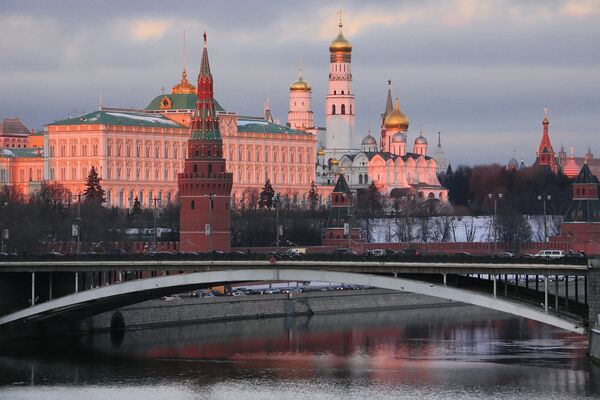This story by Armen Oganesyan, Editor-in-Chief, International Affairs, was published in International Affairs magazine.
We don`t have enough future if unconscious past drags us back. It`s impossible to look serious while reading in foreign press about Russian "finlandisation" of its neighbors. The period of severe "finlandisation" of Russia ("canadisation" in the American variant) in the nineties comes to our minds at the same moment.
According to an influential American newspaper, "humanitarian intervention" supporters have thought for the two last decades that it goes without saying that some countries cannot conduct home policy without being afraid of foreign interference. Lately the idea of limited sovereignty not only has been imposed, but it bas become a voluntary choice of the new European countries. "Limited sovereignty" as well as "not too fresh fish" cannot exist; otherwise it should be called differently.
Let`s examine the problem from another point. If a country`s sovereignty is limited, does it mean that another state consolidates its positions?
History is the evidence of the opposite, as geopolitical, economical or even moral offences boomerang against the offender. It can happen at the same moment, or in some time. The colonial policy of the British Empire led to its collapse and made it dependent of the United States of America.
My British colleague argued that Russia had not been more "noble" to its colonies than England. I could not help noticing that a lot of peoples had joined the country voluntary under the threat of physical disappearance and their originality loss.
A foreign specialist regarded the situation from the European political economy position and said that the conditions of Russians in the Russian Empire had been close to the natives` conditions in different foreign colonies. Foreign Russian subjects paid less taxes, had no serfdom and did not have to serve in the army. Some outlying districts were more developed than the center. Moreover, Russia had so many nationalities that true Russians made only 44%.
The territories were governed differently according to the local conditions and peculiarities. In most cases the original administrative, cultural and religious regulations were kept. It did not exist in the British Empire, because the country did not try to preserve the adjoined peoples` identity.
Foreign press restored the myth about Russian "finlandisation" of the post-Soviet region, but today`s Russia is not the Soviet Union. The country avoids the geopolitical ambitious traps.
The present crisis of European identity appeared because of "the Soviet factor loss and the creation of the Big Europe". It likely to be settled by the new "European Doctrine", but its creation is difficult.
If we compare the European and Russian identity crises, it`s evident that Europe tries to find the way out basing on the present situation. Russia, on the contrary, solves the problem studying its history. That is why the European countries wonder why the Russians are so much preoccupied with "historical falsifications", and why they are trying to answer "damned questions" of the past while there are lot of problems in the present.
Europe should better leave Russia alone with its history, more over they have nothing new to say about this country. It`s absurd to talk about mythic "finlandisation". When Barack Obama was elected the President, American press saw alternative interpretations of Bush`s actions.
"Washington was going to create balance of forces on the Russian borders unfavorable for Russia. The USA cannot interfere into other states` policy, enlarge its influence and protest against other countries trying to limit American influence" ("The American Conservative", USA).
As a philosopher said: "A rare adequacy of expression".
This is an abridged text.
(Views expressed in this article reflect the author's opinion and do not necessarily reflect those of RIA Novosti news agency. RIA Novosti does not vouch for facts and quotes mentioned in the story)



